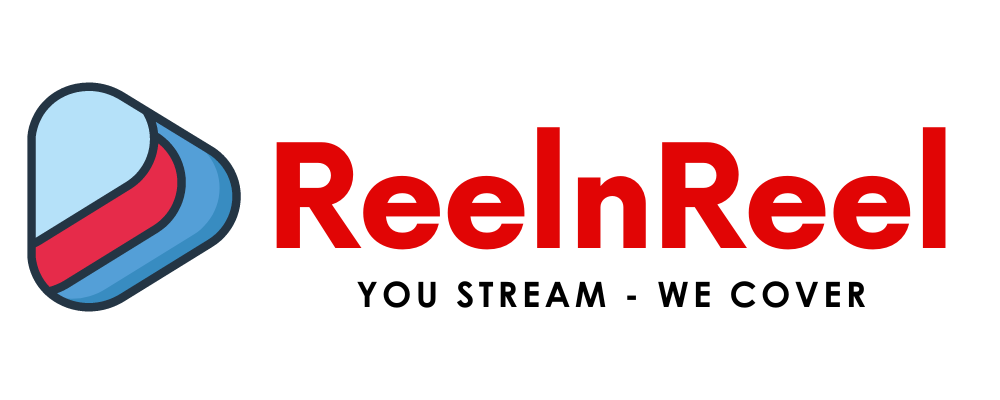Traditional methods are fading as AI technology reshapes the landscape. Brands can now create personalized content at scale, enhancing audience engagement like never before.
AI tools streamline production, making analyzing viewer preferences and optimizing campaigns easier. This shift allows marketers to focus on strategy rather than tedious tasks. The contrast between manual processes and AI-driven efficiency is striking. As we dive deeper into this topic, discover how harnessing AI can elevate your video marketing game and drive results.
Key Takeaways
- Embrace the evolution of AI tools in video marketing to stay competitive; they are becoming essential for creating engaging content.
- Leverage the benefits of AI, such as improved targeting and personalization, to enhance viewer engagement and drive conversions.
- Be aware of challenges like data privacy and ethical considerations when implementing AI in your marketing strategies.
- Stay informed about future trends in AI, including advancements in deep learning and automation, to adapt your marketing strategies accordingly.
- Continuously analyze the effectiveness of AI-driven campaigns to refine your approach and maximize results.
Evolution of AI in Video Marketing
Early AI Adoption
The initial experiments with AI in video marketing began in the late 1990s. Companies like IBM and Microsoft were among the first to explore this technology. They focused on automating video editing processes and analyzing viewer behavior.
Challenges arose during these early phases. Limited computing power hindered complex algorithms, and data availability posed a problem. Marketers struggled to gather sufficient data for practical AI training. These obstacles slowed down the widespread adoption of AI.
Recent Technological Advances
Breakthroughs in machine learning algorithms have transformed video marketing since the 2010s. Advanced algorithms now enable more accurate predictions about viewer preferences, leading to better-targeted advertising strategies.
Natural language processing (NLP) has gained traction in video content creation. Brands use NLP to generate scripts and captions automatically. This technology streamlines the production process, making it faster and more efficient.
Computer vision technology has also seen significant advancements. It allows for real-time analysis of video content. Brands can now track viewer engagement metrics, such as attention span and emotional reactions. This data helps marketers refine their strategies effectively.
Current Industry Applications
Brands are currently utilizing AI for various video marketing purposes. Automated video editing tools save time and resources. Magisto and Lumen5 offer platforms that quickly create videos from raw footage.
Successful case studies demonstrate AI’s impact on engagement. For instance, Coca-Cola used AI to analyze social media trends for its ad campaigns. The result was a 30% increase in viewer interaction compared to previous efforts.
AI enhances customer experience through personalized video recommendations. Netflix employs sophisticated algorithms to suggest content based on user behavior. This tailored approach increases user satisfaction and retention rates.
Benefits of AI in Video Marketing
Enhanced Content Personalization
AI customizes video content to fit individual viewer preferences. It analyzes user data, such as viewing habits and engagement metrics. This information allows marketers to create unique experiences tailored to each viewer.
Personalized content significantly boosts viewer retention rates. For example, a user who frequently watches cooking videos will receive more culinary content. This targeted approach keeps viewers engaged longer.
Improved Audience Targeting
AI examines audience behavior to refine video campaigns. It identifies patterns in how viewers interact with content. This analysis helps marketers tailor their strategies for better results.
Predictive analytics play a key role in targeting potential customers. By assessing past behaviors, AI can forecast future actions.
AI-driven segmentation strategies enhance targeting effectiveness. Marketers can categorize audiences based on demographics or interests. This detailed segmentation leads to more relevant messaging and higher conversion rates.
Automated Video Production
AI simplifies the video creation process through automation. AI tools can perform tasks like editing, script generation, and voiceovers, reducing extensive human involvement.
Automation saves both time and production costs. Traditional video creation often requires significant resources and a workforce. With AI, businesses can produce high-quality videos quickly and affordably.
Several tools facilitate automated video generation. Platforms like Lumen5 and Animoto allow users to create videos using templates and stock footage. These tools enable even small businesses to produce professional-grade content without large budgets.
AI Tools Transforming Video Marketing
Video Editing Software
AI features are revolutionizing traditional video editing software. Tools now offer automated editing options, such as scene detection and color correction. These capabilities save time and reduce manual labor.
AI streamlines the editing process by simplifying complex tasks. For example, the software can automatically generate highlights from hours of footage, allowing creators to focus on storytelling rather than technical details.
Engaging visual narratives becomes easier with AI assistance. AI can suggest edits based on viewer engagement data, ensuring content resonates with the target audience.
Analytics and Insights Platforms
AI enhances data collection and analysis for video performance, leading to deeper insights into viewer behavior and preferences.
Real-time insights play a crucial role in optimizing video strategies. Marketers can adjust their campaigns immediately based on viewer interactions. This agility improves overall campaign effectiveness.
Several tools leverage AI for improved marketing analytics. Platforms like Google Analytics and Tubular Labs provide actionable insights, helping marketers understand what works and what doesn’t in real-time.
Personalization Engines
AI-powered personalization engines significantly enhance video experiences. These engines analyze user data to tailor content specifically for each viewer, adapting videos based on individual interactions and preferences.
Content adaptation increases viewer engagement. Personalized recommendations lead to higher retention rates.
The benefits of using personalization engines are clear. They create a more immersive experience for viewers. This ultimately drives better results for marketers aiming to connect with their audience.
Challenges and Considerations
Data Privacy Concerns
AI technologies in video marketing raise significant data privacy concerns. User data is essential for creating personalized content. However, the collection of this data can lead to privacy breaches. Regulations like GDPR and CCPA enforce strict guidelines on how businesses use personal information. Companies must navigate these laws carefully to avoid penalties. Transparency in AI-driven marketing practices is crucial. Consumers need to understand how their data is used. This fosters trust and encourages engagement with brands.
Integration with Existing Systems
Integrating AI into current marketing platforms presents challenges. A unified approach to video marketing and AI can streamline processes, allow for better data management, and improve targeting strategies. Despite the hurdles, successful integration enhances overall efficiency. Companies can leverage AI to analyze viewer behavior and preferences more effectively.
Cost and Resource Implications
Adopting AI technologies in video marketing impacts finances significantly. Initial investment costs can be high, requiring careful budgeting. Businesses must assess potential ROI from implementing AI solutions. Successful adoption can lead to increased engagement and sales. However, companies need to consider changes in resource allocation as well. Training staff on new tools is essential for effective implementation. Allocating resources wisely ensures that the transition to AI is smooth and beneficial.
Future Trends and Predictions
AI-Driven Interactive Videos
AI-driven interactive videos allow viewers to engage directly with content. These videos can include quizzes, polls, or clickable elements that guide the experience. This interactivity significantly boosts viewer engagement. Studies show that interactive content increases viewer retention by up to 70%.
Brands like Coca-Cola and BMW successfully use interactive video formats. Coca-Cola’s “Choose Your Own Adventure” campaign allowed users to select different story paths. BMW’s interactive ads let viewers explore car features in a virtual environment. These examples demonstrate how brands leverage interactive videos to create memorable experiences.
Predictive Analytics in Campaigns
This approach has proven successful in increasing viewer satisfaction and retention rates. Another example is Unilever’s campaign, which effectively used predictive models to target specific demographics. Their strategy resulted in a 25% increase in engagement compared to previous campaigns.
Real-Time Content Optimization
AI enables real-time adjustments to video content based on audience reactions. Marketers can analyze viewer data instantly and modify their strategies accordingly. Immediate feedback loops are essential for optimizing marketing efforts.
Tools like Vidooly and Wistia offer features for real-time optimization. These platforms track viewer interactions and provide insights into what works best. This capability allows marketers to adapt their content, improving overall performance.
Closing Thoughts
The future of AI in video marketing is bright and full of potential. You’ve seen how AI tools enhance creativity, streamline production, and deliver personalized content that resonates with audiences. Embracing these technologies can elevate your marketing strategy, driving engagement and conversions like never before.
Stay ahead of the curve by continuously exploring new AI developments. Adapt to the changing landscape and leverage these innovations to create impactful video content. The time to act is now—don’t let your competitors outpace you. Dive into AI-driven video marketing and watch your brand soar.
Frequently Asked Questions
What is the role of AI in video marketing?
AI enhances video marketing by automating content creation, optimizing targeting, and analyzing viewer engagement. This leads to more personalized and effective marketing strategies.
How can AI improve video content quality?
AI tools can analyze data to suggest improvements in scriptwriting, editing, and visual effects, ensuring higher-quality videos that resonate with audiences.
What are some popular AI tools for video marketing?
Popular AI tools include Adobe Sensei, Magisto, and Lumen5. These platforms offer features like automated editing, innovative suggestions, and analytics to boost video marketing efforts.
What challenges does AI face in video marketing?
Challenges include data privacy concerns, the need for human creativity, and potential biases in AI algorithms. Marketers must address these issues to maximize benefits.
How will AI shape the future of video marketing?
AI will enable personalized experiences, enhance real-time analytics, and automate production processes. This evolution will make video marketing more efficient and impactful.
Can small businesses benefit from AI in video marketing?
Absolutely! Small businesses can leverage AI tools to create professional-quality videos without large budgets, leveling the playing field in competitive markets.
Is AI in video marketing cost-effective?
AI can reduce production costs and time while increasing ROI through targeted campaigns. Investing in AI tools often pays off through improved audience engagement.





